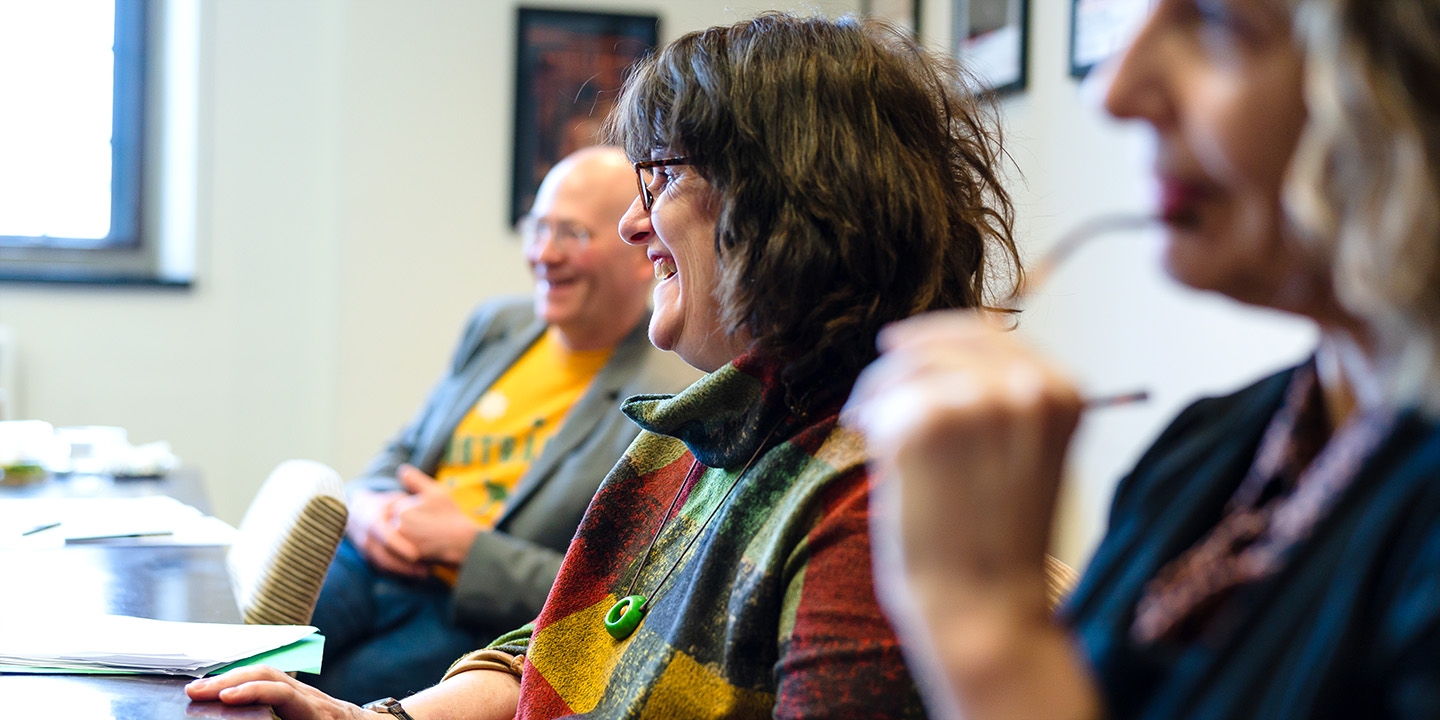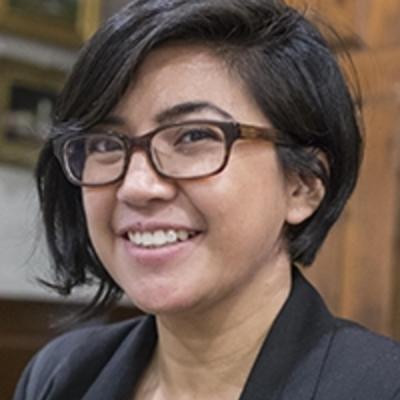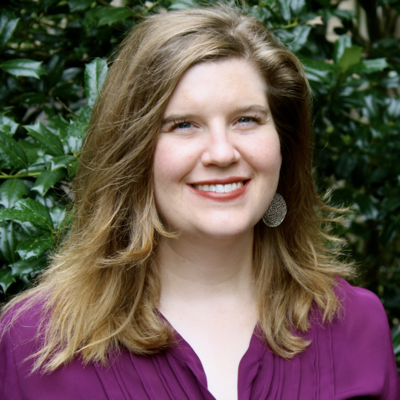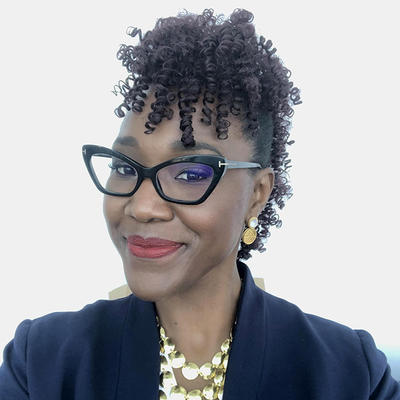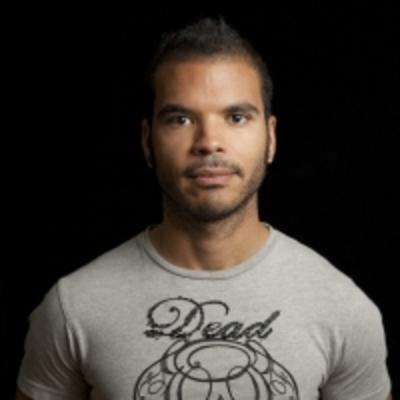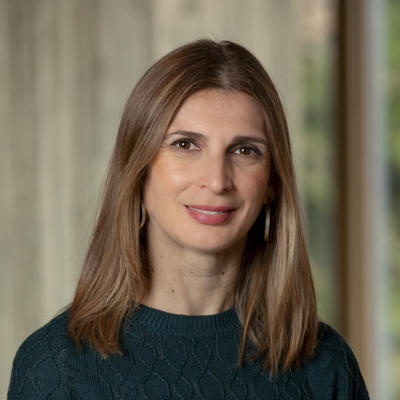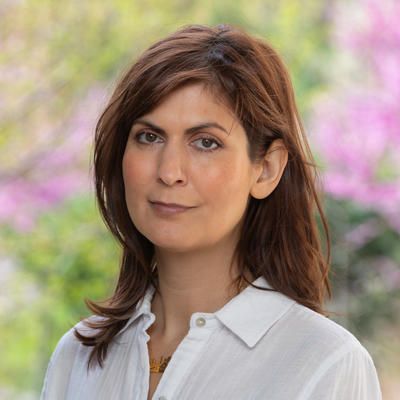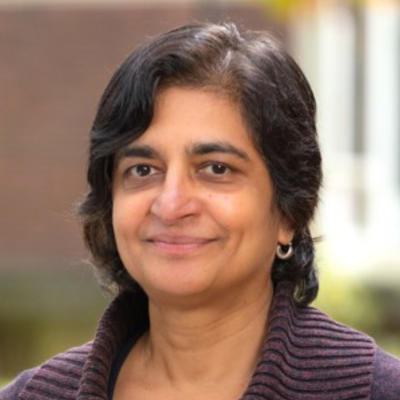Get to know us.
We are a community of faculty, scholars, staff, and students devoted to engagement in the humanities.
The Suzy Newhouse Center faculty fellows consists of Wellesley faculty on sabbatical and summer fellows. View previous fellows.
2023-2024 Fellows
-
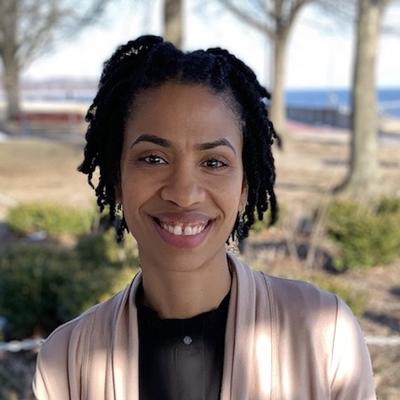
Kaysha Corinealdi × Kaysha CorinealdiAssociate Professor of History, Emerson College
Kaysha CorinealdiAssociate Professor of History, Emerson CollegeKaysha Corinealdi is an Associate Professor of History at Emerson College. She specializes in twentieth century histories of empire, migration, feminism, and Afro-diasporic activism in the Americas. Her book, Panama in Black: Afro-Caribbean World Making in the Twentieth Century (Duke University Press, 2022), centers the activism of Afro-Caribbean migrants and their descendants as they navigated practices and policies of anti-Blackness, xenophobia, denationalization, and white supremacy in Panama and the United States. To learn more about Corinealdi’s overall scholarship, including her public-facing work, please visit her website.
During her time as a Newhouse Fellow, Corinealdi will work on a second book project tentatively titled, Radical Women on the Panamanian Isthmus, which examines the political activism and careers of Afro-descendant women during a century marked by suffrage campaigns, anti-war and anti-imperialist organizing, the Cold War, and the rise of a thirty-year dictatorship. The project incorporates governmental and private archives, oral interviews, and newspaper findings from Cuba, Mexico, Panama, and the United States, with the goal of highlighting the communal and internationalist nature of the political work of a small yet vibrant cross-generational group of Black women.
-

Josh Lambert × Josh LambertSophia Moses Robison Associate Professor of Jewish Studies and English
Josh LambertSophia Moses Robison Associate Professor of Jewish Studies and English -
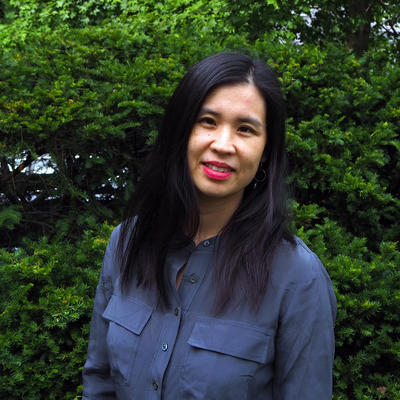
Michelle C. Lee × Michelle C. LeeAndrew W. Mellon Assistant Professor of French and Francophone Studies
Michelle C. LeeAndrew W. Mellon Assistant Professor of French and Francophone Studies -
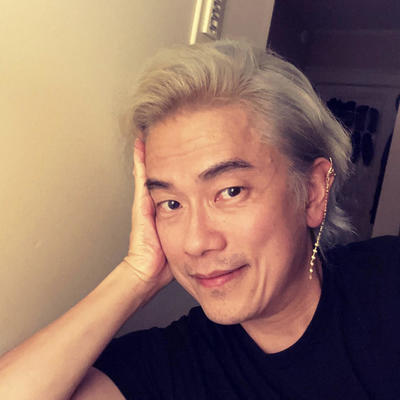
Eng-Beng Lim × Eng-Beng LimAssociate Professor of Women's, Gender, and Sexuality Studies; Founding Director of the Consortium of Race, Migration and Sexuality, Dartmouth College
Eng-Beng LimAssociate Professor of Women's, Gender, and Sexuality Studies; Founding Director of the Consortium of Race, Migration and Sexuality, Dartmouth CollegeEng-Beng Lim is Associate Professor of Women’s, Gender, and Sexuality Studies, and the founding director of the Consortium of Studies in Race, Migration, and Sexuality at Dartmouth College. He is the author of the award-winning Brown Boys and Rice Queens: Spellbinding Performance in the Asias (NYU Press, 2014), which examines the legacies of queer colonialism in the performance of orientalist intimacies across Asia and Asia America.
At the Newhouse Center, he will be completing his second monograph, Megastructures of Feeling, that extends Raymond Williams’s “structures of feeling” to architectural utopias and migration art that look to impossible form, stunning iconicity and futuristic fantasy as elusive styles that are at once evanescent in their manifestions and yet crucial in renewing the question of scale and stature as a racial and queer concept, particularly in Asia America.
He is also working on two other secondary projects. The first entitled, Ethnocuties, a neologism borne of ethnoporn and cute studies, is a visual study of photography and fantasy art by artists exploring radical queer friendship that may be forged with plants or through aesthetic experimentations that are uncanny, wild and cute. The second is a multi-volume anthology of one-act immigration plays by Asian American performers and writers.
-
PRR
Petra R. Rivera-Rideau ×PRRPetra R. Rivera-RideauAssociate Professor of American Studies -
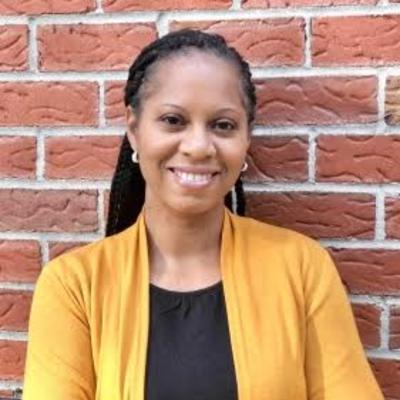
LaToya Sawyer × LaToya SawyerAssistant Professor of English, St. John's University
LaToya SawyerAssistant Professor of English, St. John's UniversityLaToya Lydia Sawyer (she/her/hers) is an assistant professor of English at St. John’s University. Her research focuses on Black women’s rhetoric, literacies, and discourse practices online. She is currently working on her first book titled Composing Digital Black Womanhood which examines Black women’s identity performances and agency across social media platforms.
Dr. Sawyer teaches graduate and undergraduate courses in Black Diasporic rhetoric and writing, digital rhetoric, feminist theory, African American women’s rhetoric, and African American literacies. She was awarded a 2020-2021 American Postdoctoral Fellow through the American Association of University Women and was a 2014-2016 fellow in the National Council of Teachers of English Cultivating New Voices program, and a 2012 Conference of College Composition and Communication Scholar for the Dream.
Dr. Sawyer received her Ph.D. in Composition and Cultural Rhetoric with a Certificate of Advanced Studies in Women and Gender Studies and her MA in Newspaper, Magazine, and Online Media from Syracuse University, and her BA in English from Hartwick College. Sawyer’s writing has appeared in Peitho and Education Review.
-

Franziska Seraphim × Franziska SeraphimAssociate Professor of History, Boston College
Franziska SeraphimAssociate Professor of History, Boston CollegeBorn and raised in Germany, I was trained as a historian of modern Japan at Columbia University and have been teaching history at Boston College since 2001. My first book dealt with the social landscapes of war memory in postwar Japan. Since then, I have devoted much of my teaching and research to exploring ways of “thinking history globally,” to which the geographical notions of space, place, and scale are central if we are to understand the abiding inequalities that have come to structure our global world.
In my current book manuscript, which I hope to finish drafting as a Newhouse fellow this year, I go back to the aftermath of World War II--long hailed as a transformative moment that codified global justice and human rights in the Western response to the atrocities committed by Nazi Germany and Imperial Japan--to recreate a legal geography of the Allied war crimes program, which has too often been reduced to the Nuremberg Trials of Nazi leaders. In taking a global view, I reconstruct the spaces and places that served as sources of legitimation and contestation of legal processes in Asia, Eurasia, and Europe, from (colonial) territoriality and military law to legislation enabling the reintegration of the convicted in society after their release. The viewpoint from the prison rather than the courtroom, of punishment rather than legal conviction, helps to locate this Allied endeavor on a transnational scale that includes the former perpetrator societies as co-creators of meanings of justice.
2023 Summer Fellows
-
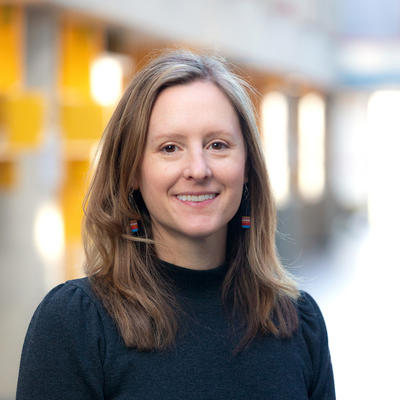
Anne Brubaker × Anne BrubakerSenior Lecturer, Writing Program
Anne BrubakerSenior Lecturer, Writing ProgramAnne Brubaker is a Senior Lecturer in the Writing Program, where she teaches courses on modern American literature, gender, science and technology studies, and science fiction. Her research on the intersections among literary criticism, modern American writing, and mathemathics has appeared in American Quarterly, New Literary History, Genre: Forms of Discourse and Culture, and The Palgrave Handbook of Literature and Mathematics.
Her summer research projects include an article on Octavia Butler's lesser known 1983 speculative short story "Speech Sounds," a story about a pandemic that renders people unable to speak, write, or comprehend language. The story's relevance to our contemporary moment is less an example of science fiction's predictive power and instead tied to a continuum of racial justice movements from the 1960s onwards. Anne's other project is a co-written paper with Jennifer Lieberman (Professor of English at the University of North Florida) for a special issue of Configurations: A Journal of Literature, Technology, and Culture.
-
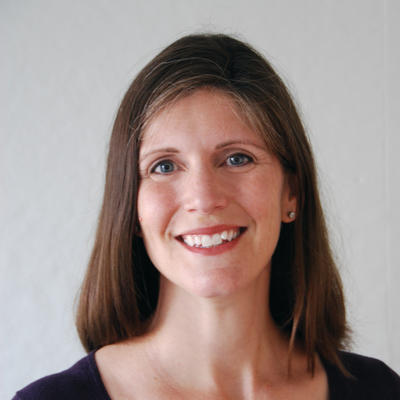
Emily Harrison × Emily HarrisonLecturer, Women's and Gender Studies
Emily HarrisonLecturer, Women's and Gender StudiesEmily Harrison is a Lecturer in the Women's and Gender Studies Department at Wellesley College and an Instructor in Epidemiology at the Harvard TH Chan School of Public Health. A historian of science, technology, and medicine, her research addresses the politics and culture of epidemiology, public health, and social medicine. She is particularly interested in problems of authority, justice, and trust. Her work has been published as articles in the American Journal of Public Health, the European Journal of Epidemiology, and Scientific American, as chapters in a number of international edited volumes, and in public media coverage ranging from the Anchorage Daily News to The New Yorker. As a Newhouse summer fellow, she will be revising a book manuscript on the history of clinical epidemiology in which she examines imagined and actualized roles of modern science in managing political and ethical tensions for matters of health governance.
-
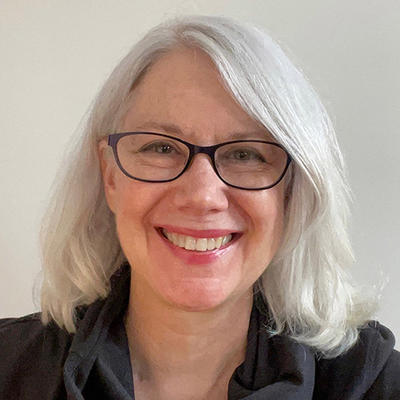
Phyllis McGibbon × Phyllis McGibbonElizabeth Christy Kopf Professor of Art, Studio Art; Media Arts and Book Sciences
Phyllis McGibbonElizabeth Christy Kopf Professor of Art, Studio Art; Media Arts and Book SciencesThis summer at the Newhouse I'm conducting research for a new artist's book provisionally entitled "Sistering in the Shadows." I am fascinated with the self-reflexive nature of artist books and how the intersection of text, image and materiality may complicate dominant narratives.
My starting point is a set of inchoate memories from childhood. I grew up just over the hill from a residential school called the Wisconsin School for Girls. Not all of the students there were delinquents, but those living nearby knew it to be a place from which girls ran away—often. Thinking back to that familiar, furtive presence of girls on the run (sometimes abandoning their boots in the field of purses in our barn) I began researching the school, which operated next door to my parents' farm from the early 1940's through the mid 1970's.
What brought so many girls to that place in the woods and then through our fields? In the years before Roe v Wade, how many were pregnant? And how did the subsequent transformation of that facility (now a correctional institution for men, surrounded by a 6,000 foot stun fence) echo the proliferation of so many prisons across the US?
-

Vernon Shetley × Vernon ShetleyProfessor of English
Vernon ShetleyProfessor of EnglishVernon Shetley has taught in the Wellesley College English Department since the fall of 1984. His areas of teaching include film, literature, and composition, from cinematic horror and film noir to romantic comedy and the contemporary novel. He has published essays and reviews on film, poetry, dance, and theory. His writings on cinema include articles on the Olsen Twins, Blade Runner, and Scarlett Johansson's science-fiction films. While a Newhouse fellow he will work on completing a manuscript on American neo-noir filmmaking from The Long Goodbye (Robert Altman, 1973) to Mulholland Drive (David Lynch, 2001) and beyond, focusing on the representation (often oblique or implicit) of the realm of the economic in neo-noir.
Thanks to the generosity of Mary L. Cornille and Jack Cogan, Wellesley College is able to appoint each year the Mary L. Cornille Distinguished Visiting Professor in the Humanities. Cornille Professors are in residence for either a semester or a year. During this time, they contribute to the intellectual life of Wellesley College faculty with special attention to the intellectual growth of our undergraduates.
The Cornille Professorship is administered jointly by the Office of the Provost and by the Suzy Newhouse Center for the Humanities, with which the Cornille Professor is automatically affiliated.
-

Ivan Kurilla × Ivan KurillaProfessor of History and International Relations; Mary L. Cornille Distinguished Visiting Professor in the Humanities
Ivan KurillaProfessor of History and International Relations; Mary L. Cornille Distinguished Visiting Professor in the HumanitiesIvan Kurilla, Professor of History and International Relations, is the 2023-2024 Mary L. Cornille Distinguished Visiting Professor in the Humanities. He will be in residence at the Suzy Newhouse Center for the Humanities in Spring 2024.
Professor Kurilla's specialty is Russian-U.S. relations in the nineteenth century, contemporary Russian-U.S. relations, and Russian historical and symbolic politics. He is a prolific scholar and significant public intellectual. His most recent book (in Russian) is "Bitva za proshloe: Kak politika menyaet istoriyu" (Battle for the Past: Politics Altering History) (Alpina Publisher, 2022). It was shortlisted for the Russian-language best non-fiction award "Illuminator" (Prosvetitel'). Professor Kurilla's academic articles have been published in leading Russian and international journals, including the Journal of American History, Nationalities Papers, Demokratizatsiia, Journal of the Cold War Studies, Journal of Slavic Military Studies, Problems of Post-Communism, and Europe-Asia Studies.
He is also a frequent commentator in the public domain on historical and international issues. His op-eds have appeared in the Washington Post, National Interest, Novaya Gazeta, Moscow Times, Al Jazeera, Riddle, Troitsky Variant, and others. He has served as a commentator on the BBC, NPR, Sky TV, Südwestrundfunk, Kommersant-FM, Business-FM, Radio-KP, TV Dozd, RTVi, Voice of Russia, Voice of America, RBC-TV, OTR and others. He has been quoted in and interviewed by The New York Times, US News and World Report, Macleans, Moscow News, Moscow Times, The Village, France Presse, and many others.
-
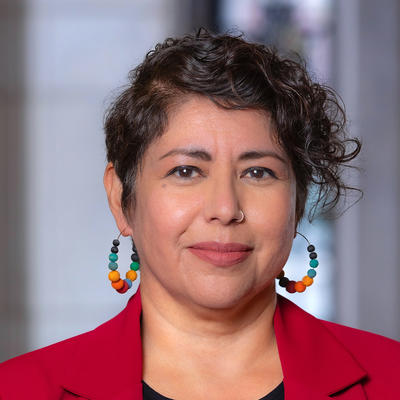
Irene Mata × Irene MataDirector, Suzy Newhouse Center for the Humanities; Faculty Director, Mellon Mays Undergraduate Fellowship Program; Associate Professor of American Studies
Irene MataDirector, Suzy Newhouse Center for the Humanities; Faculty Director, Mellon Mays Undergraduate Fellowship Program; Associate Professor of American StudiesAs an interdisciplinary scholar, I am committed to supporting the growth of the humanities at Wellesley. Humanistic thinking is vital to all fields of study and to our growth as individuals and critical thinkers. It is through the arts and humanities that we learn to express our creativity, connect to our humanity, and ask the questions that expand our worldview.
My research blends my love of literature, performance, and cultural studies and focuses on interrogating the representation of communities of color in contemporary creative works. My first book, Domestic Disturbances: Re-Imagining Narratives of Gender, Labor, and Immigration, examines the stories created by Chicana/Latina writers through a new immigrant narrative paradigm. My second manuscript, Beyond the Moment: The Art of Resistance in Latinx Performance, engages with Latinx performance texts that rely on previous moments of resistance to imagine new—and future—visions of social change.
I am also committed to helping develop a robust mentoring community for students and faculty at Wellesley and across other academic institutions. Since the fall 2021, I have worked with Téo Barbalho in developing our Mellon Mays Undergraduate Fellowship Program to inspire and prepare young scholars interested in continuing their education in the humanities at the graduate level. I have collaborated in the creation of various mentoring programs for faculty of color at Wellesley and in the New England area. As part of the New England Humanities Consortium’s Faculty of Color Working Group, with funding from the Mellon Foundation, M. Gabriela Torres, Melva Treviño and I created a regional mentoring program that brings together early-career scholars and dedicated senior mentors to foster a network of learning, community building, and support. Our work culminated in a piece for Inside Higher Ed, “A Change Higher Education Needs Today.” All of these mentoring initiatives benefit individuals while encouraging change at the institutional level.
At the root of all of my work is a deep love for community and an abiding commitment to social justice. -
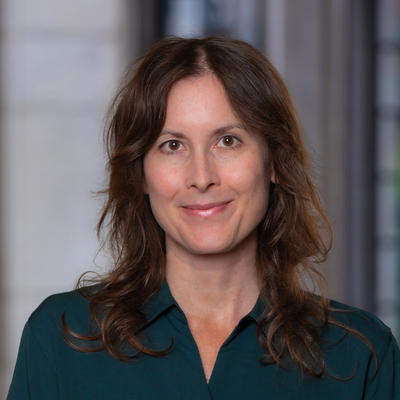
Julie Walsh × Julie WalshDirector, Suzy Newhouse Center for the Humanities; Associate Professor of Philosophy
Julie WalshDirector, Suzy Newhouse Center for the Humanities; Associate Professor of PhilosophyIn my leadership role in The Newhouse, I am particularly eager to support projects that push the traditional boundaries of the humanistic sciences. My first academic love was evolutionary biology; ever since, I have been fascinated by the historical and contemporary intersections between science, philosophy, and religion.
I am currently exploring this intersection in research that engages with ethical questions surrounding the development, deployment, and use of digital technologies. In this project, I partner with my colleague Professor Eni Mustafaraj in Computer Science. With the support of a National Science Foundation grant, we are studying the ways that liberal arts institutions like Wellesley prepare their graduates for the ethical dimension of careers in the digital technology sector. You can read more about our project here.
I also have a longstanding interest in historical treatments of human freedom, especially from marginalized philosophers. You can read a short piece about one such figure in my essay "Gabrielle Suchon, Philosopher Queen of the Amazons" in the National Endowment of the Humanities Magazine.
A historical event that unites all of my interests is the witch panic of Early Modern Western Europe and the Colonial United States. I teach a class on this topic (Philosophy & Witchcraft) and am invested in looking at the variety of ways that the witch hunts were defended or decried by philosophers of the time. You can listen to an interview I did on WBUR, as part of the "Brilliant Boston" series, on the Salem witch hunts here, and you can read a short interview I did with GBH news on the topic here.
-
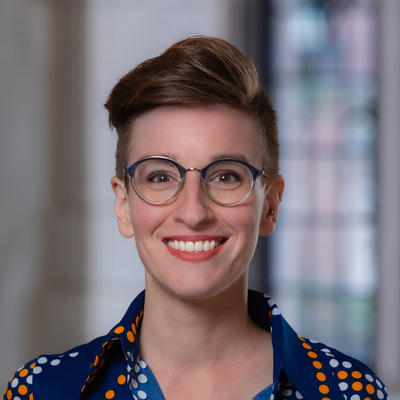
Lauren Cote × Lauren CoteEvent and Program Manager
Lauren CoteEvent and Program ManagerLauren Cote holds a Master of Arts in English. Although she was always interested in creative writing, she chose to study literature after reading Salman Rushdie’s Haroun and the Sea of Stories as an undergraduate. This book is still one of her favorites, and stands at the core of her outlook on the humanities as vast, interconnected fields in which human stories, ideas, and experiences intertwine and build upon one another.
Since joining the Newhouse Center in 2018, Lauren has planned and executed over 100 public-facing events, including academic lectures and panels, author visits, art exhibitions, symposia, and concerts. She is involved in each event from the initial planning all the way to day-of execution and wrap-up, and she takes great pride in watching them come together.
Lauren also provides administrative support for the directors and visiting fellows. In this aspect of her job, she likes to picture herself as a concierge: whatever you need, she’ll make it happen.
When she’s not in the Newhouse Center, Lauren is either scaling hills on her trusty road bike, playing in her weekly Dungeons and Dragons game, or negotiating dinner times with her cat.
Mellon Mays Undergraduate Fellows
-
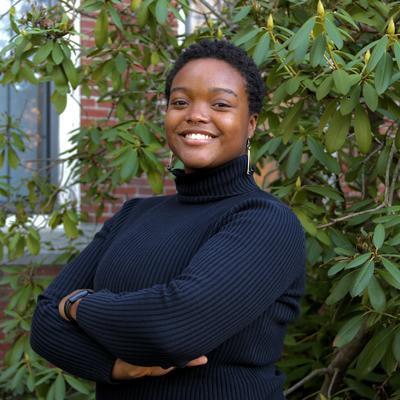
Kay Bobb × Kay Bobb
Kay BobbKay is an Art History major with a minor in Women's and Gender Studies. Through researching masquerade costumes in Trinidad & Tobago's Carnival, Kay analyzes the presence of genderqueer identity in the festival to understand the impacts of colonialism in the Caribbean.
-

Maria Chi-Chable × Maria Chi-Chable
Maria Chi-ChableMaria Chi-Chable is a Women’s and Gender Studies major and prospective Cinema and Media Studies minor. Using borderland theory, Maria examines how the Mexican-American singer, Jenni Rivera, transmits images of border life, displacement, and the culture of working-class communities. As a proud daughter of immigrant parents, Maria is interested in examining how Rivera gives voice to the female migrant body.
-
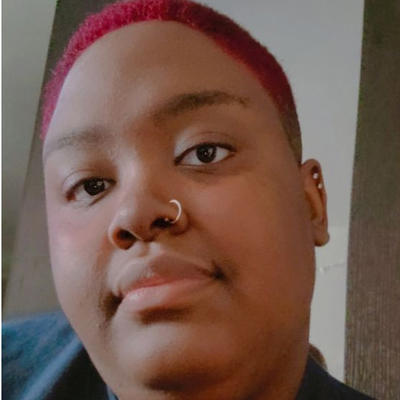
Charnell Jones × Charnell JonesCharnell Jones
Charnell JonesCharnell JonesCharnell Jones '23 is double majoring in English and Women & Gender Studies. Charnell's research is focused on the presence of Black feminism and Black queer theory in 21st century literature.
-
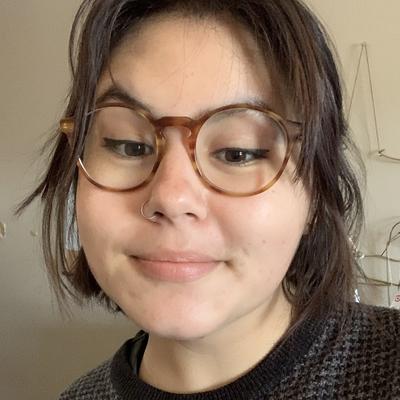
Bella Perreira × Bella Perreira
Bella PerreiraBella '24 is an American Studies and Education double major. Their research seeks to understand the relationship between the military and Filipinx/Mexican communities in San Diego; the project explores themes of empire, migration, nationalism, antiwar resistance, predatory recruiting practices, and San Diego as a 'military city.'
-
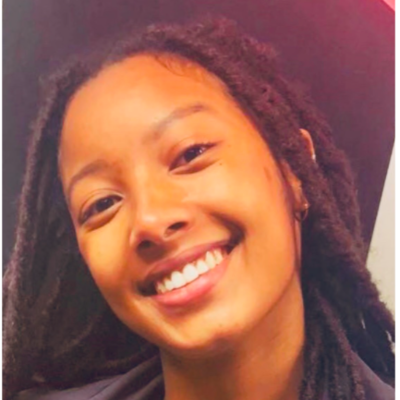
TylerBell Smith × TylerBell Smith
TylerBell SmithTylerBell Smith '23 is a neuroscience and cinema/media studies double major. An avid reader and writer with a vested interest in film and cinema and how media can be used as tools to encourage critical thought responses and elicit empathy. Currently exploring the nexus between neuroscience and the social sciences and media depictions and perceptions of racial difference in film and television.
-
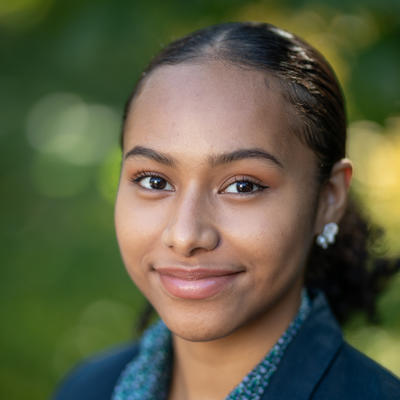
Jade Aliyana Young × Jade Aliyana Young
Jade Aliyana YoungMy project explores how low-income women of color resist and subvert the constraints of the welfare state by resorting to various strategies of survival, some of which are described as illegal by the welfare programs they seek help from. In committing fraud, engaging in other stigmatized acts out of survival, and striving to meet the needs of their children by any means necessary, poor welfare mothers develop a logic of resistance that defies the state-sanctioned constructions of black womanhood and motherhood. I ask how theories produced by black radical feminists can inform the way we understand the significance of their resistance? My research centers on welfare mothers of color as active participants and possibly contributors to the black radical feminist tradition.
Student Ambassadors
-

Ada Eke × Ada Eke
Ada EkeAda is a member of the class of 2023 at Wellesley College, studying psychology and chemistry. They conduct student outreach for the Suzy Newhouse Center as the director of the Comic Book Club and can always be counted on to have candy and book recommendations on hand. They can be contacted at ae1@wellesley.edu if you have any questions about the club or just want to talk.
-

Alexa Fronczek-Lewis × Alexa Fronczek-Lewis
Alexa Fronczek-LewisAlexa Fronczek-Lewis is a member of the green class of 2025 with a prospective double major in East Asian Studies and Political Science. They help the Suzy Newhouse Center with installations of different projects and various clerical work.

